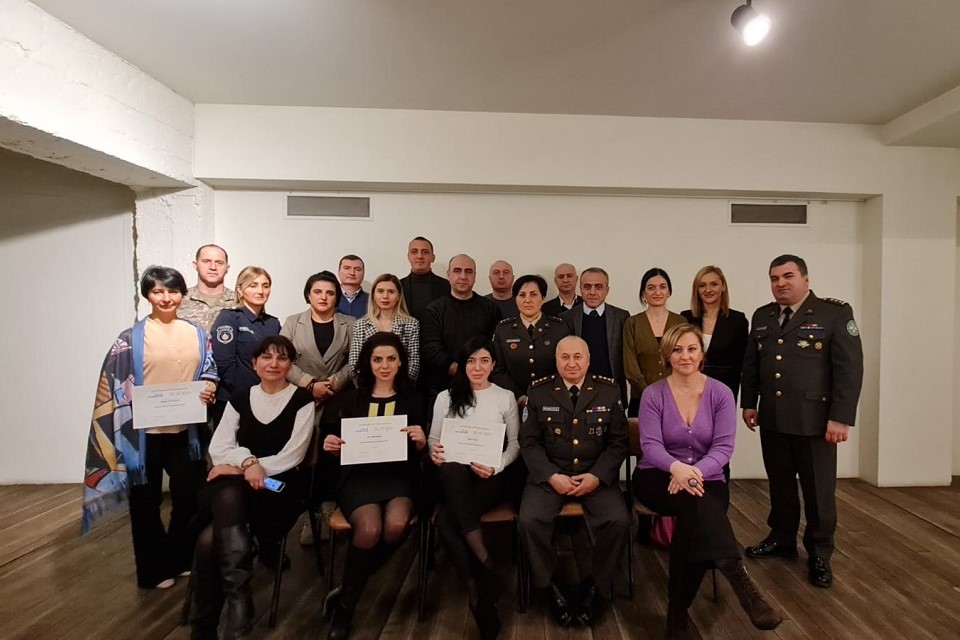Professional development sessions to promote Women, Peace and Security agenda in Georgian security sector
Date:

The security sector of Georgia plays a crucial role in promoting the Women, Peace and Security agenda (WPSA) in the country by implementing the national action plans and other related activities. UN Women, as an active supporter of this process, strengthens the capacity of the security sector institutions (SSIs) by sharing expert knowledge with them and building their capacities.
As part of this support initiative, professional development series were conducted for the staff working on gender issues in the SSIs. The professional development sessions were planned and implemented in partnership with the DCAF - Geneva Centre for Security Sector Governance. The sessions were delivered in a hybrid format and lasted for nine months, ending in February 2023. In total, 35 employees from across the SSIs were trained.
The participants of the programme received in-depth knowledge about the WPSA. Emphasis was placed on the gender analysis tools in the security sector, collecting and analysing sex- disaggregated data, promoting women’s meaningful participation and leadership opportunities, the role of gender advisers in the security sector, and the barriers women face to advance in their careers, as well as the best practices for improving diversity and inclusion.
According to programme participant Tamar Giorgobiani, Senior Adviser in the Department of Internal and External Security Affairs at the Office of the National Security Council: “The professional development programme was a very important initiative both for increasing awareness and for empowering the women who work in the state security sector. Besides, I think that the trainings will help the agencies to share their experiences and build networks.”
The cooperation with DCAF and the professional development sessions have been carried out within the framework of the UN Women project “Accelerating Implementation of the Women, Peace and Security Agenda in Georgia”, generously funded by the Conflict, Stability and Security Fund and the Ministry of Defence of the Government of the United Kingdom.